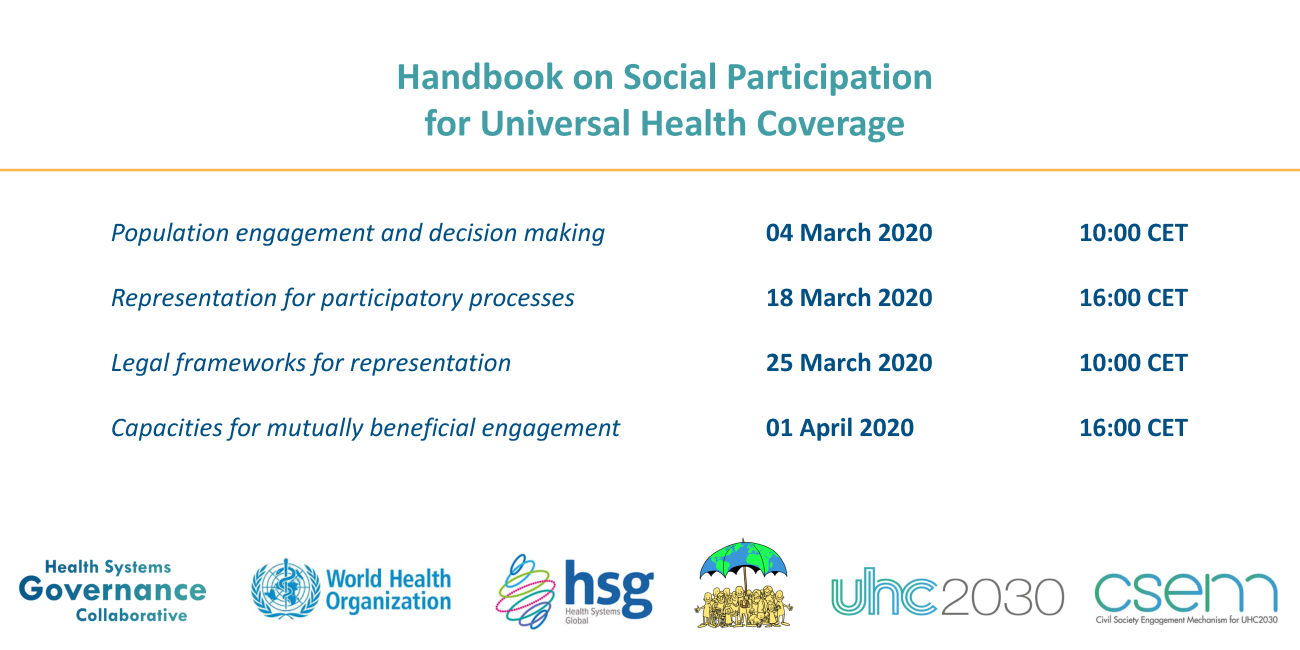Webinar series: Social participation for Universal Health Coverage
WHO, the Health System Governance Collaborative, Health Systems Global, UHC2030, the Civil Society Engagement Mechanism (CSEM) of UHC2030 and the UHC Partnership are co-hosting a webinar series around the development of a WHO guidance document, the handbook on social participation for universal health coverage.
Stay tuned.
- Population engagement and decision making (4 March 2020 at 10:00 CET)
- Representation for participatory processes (18 March 2020)
- Legal frameworks for participation (25 March 2020)
- Necessary capacities for mutually beneficial government engagement with populations, communities and civil society (1 April 2020)
Link to the webinar:
Background
WHO, the Health System Governance Collaborative, Health Systems Global, UHC2030, the Civil Society Engagement Mechanism (CSEM) of UHC2030 and the UHC Partnership are co-hosting a webinar series around the development of a WHO guidance document, the handbook on social participation for universal health coverage. The handbook will provide best practice guidance to policymakers on how to effectively and meaningfully engage with populations, communities and civil society in national policy, planning and review processes.
The first session of the series looked into population engagement and decision making:
How, and by whom, are decisions taken once participatory processes (public consultations, population engagement mechanisms, deliberative processes) have taken place? How far do results and insights from participatory processes in health translate into policy decisions?
Public participation initiatives are often criticised due to their insufficient influence on decision-making, and policy translation is not always the priority in participatory governance processes. Several factors, such as a culture of participation, political will coupled with mid-level cadres’ commitments who hold budgets and influence policies, tip the balance more towards policy-uptake.
The team synthesized available peer reviewed literature and findings from nine country case studies across the world. A consultation on the handbook content is currently open and we encourage all interested parties to take part.
Session Recorded Video
The recording of this session can be found below:
